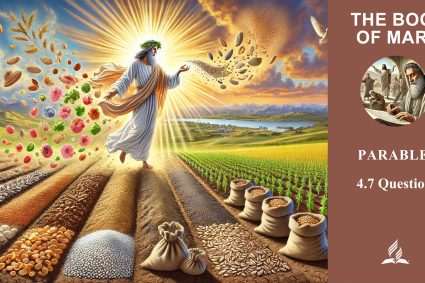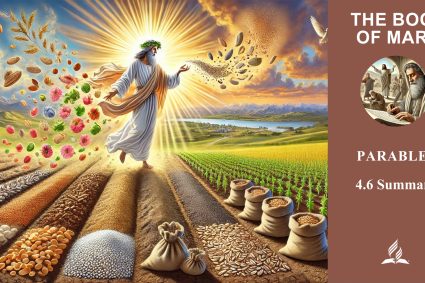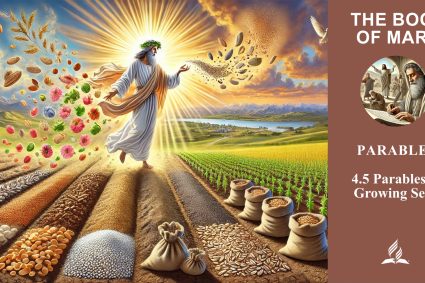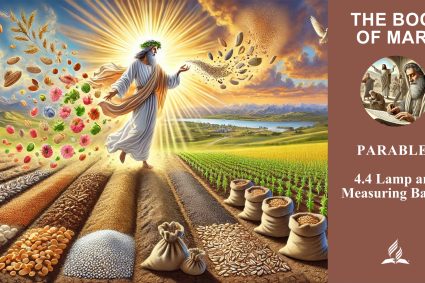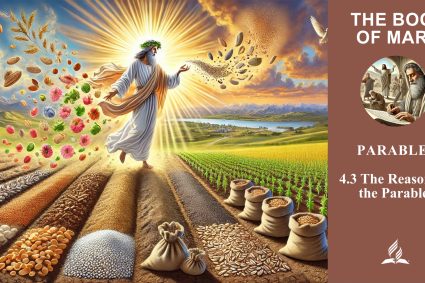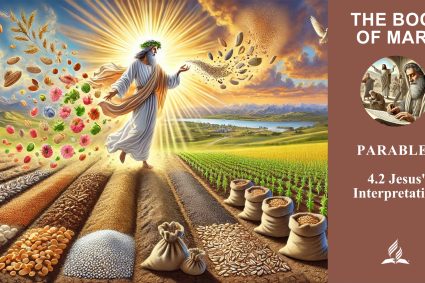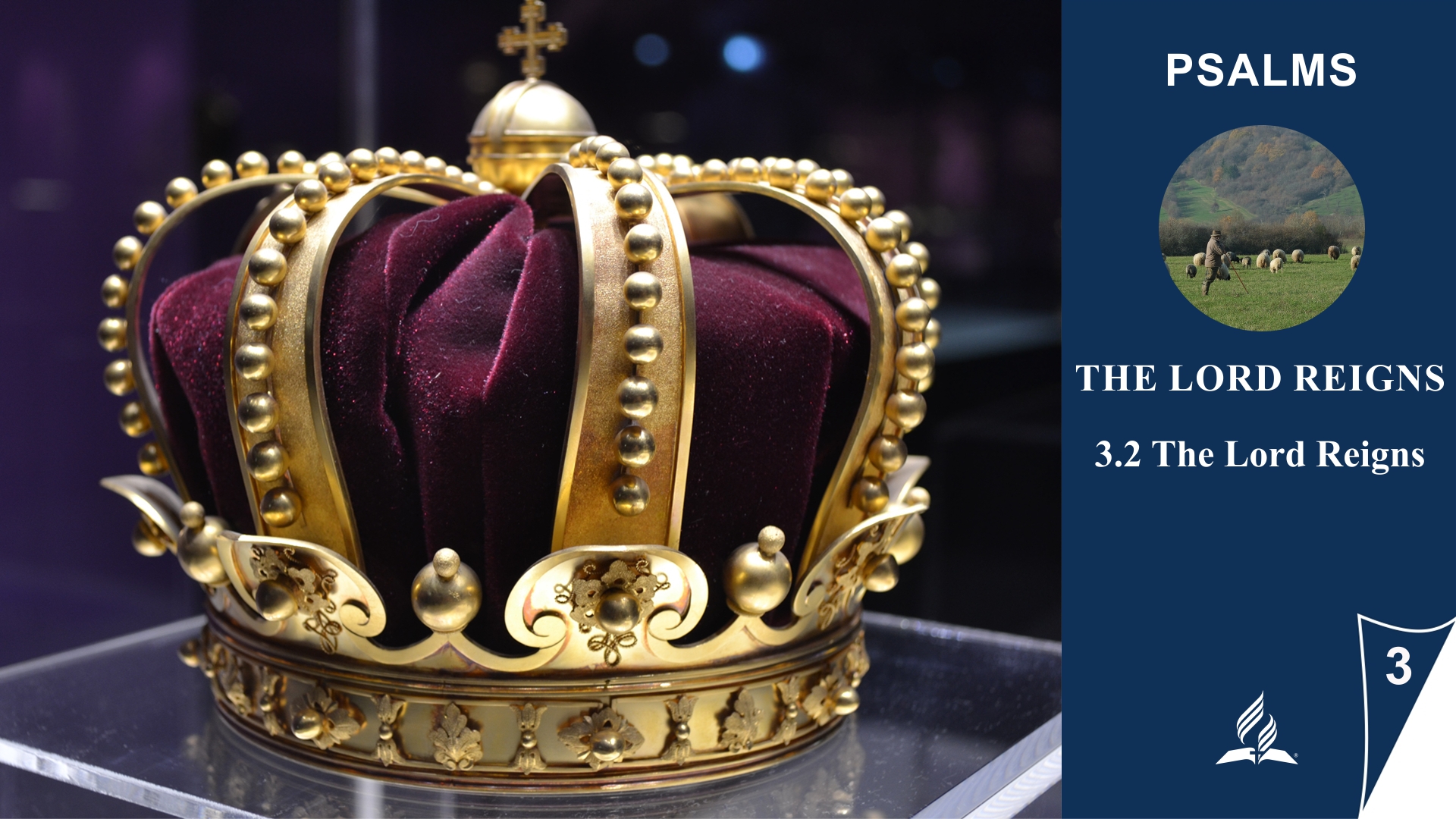

3.2 The Lord Reigns
The Psalms emphatically highlight the inseparable connection between the Lord as the Creator and the Lord as the Sovereign, the Ruler. These two aspects of His nature complement each other harmoniously, giving His glory and majesty a deeper dimension.
The solemn declaration “The LORD reigns” is repeated in various Psalms (Psalm 93:1; 96:10; 97:1; 99:1), and its echo resonates throughout the entire Book of Psalms. This underscores the central importance of God’s sovereignty in the faith of the Psalmists. The Lord, as the unrestricted Ruler, stands above all and reigns with irresistible power and authority.
The description of the Lord clothed with honor, majesty, and strength (Psalm 93:1; 104:1) conveys an awe-inspiring image of His royal splendor. The metaphors of clouds and darkness in Psalm 97:2, as well as the concept of Him wrapping Himself in light like a garment (Psalm 104:2), emphasize the transcendence of God. These images express that the true greatness of God surpasses human imagination and that His nature is both sublime and unfathomable.
In these Psalms, the unique greatness of God is expressed in powerful words and carefully chosen metaphors to remind people that the Lord is not only the Creator of the universe but also the Almighty Sovereign who rules over all. This understanding of God as both Creator and Sovereign can inspire believers to bow before His glory and be aware that their worship is due to the worthy King who reigns over all things.
Read Psalm 97. What characterizes God’s reign? (Psalm 97:2, 10)
Psalm 97 is a praise for the reign of God, emphasizing the sublime nature of His kingship. Verses 2 and 10 highlight specific characteristics of God’s reign:
-
Surrounded by Clouds and Darkness (Psalm 97:2): The psalm begins by stating that the Lord is surrounded by clouds and thick darkness. This metaphorical depiction emphasizes the transcendence and unfathomable nature of God. Clouds and darkness symbolize the inaccessibility and majesty of God, surpassing human imagination and understanding.
-
Righteousness and Justice (Psalm 97:2): Another aspect emphasized in this psalm regarding God’s reign is His righteousness and justice. The reign of God is not only powerful and sublime but is also characterized by divine righteousness and truth. This underscores that God’s reign is founded on principles of justice and righteousness.
-
Light Shining on the Righteous (Psalm 97:10): Verse 10 highlights that light shines on the righteous, bringing joy to those with upright hearts. This figurative representation emphasizes the beneficial impact of God’s reign on those who live in righteousness and sincerity. God’s reign brings light and joy into the lives of those who are obedient to Him.
In summary, Psalm 97 reveals that God’s reign is characterized by sublime power, divine justice, and a blessing for the righteous. The poetic images and expressions in this psalm provide a profound understanding of the greatness and goodness of God as the ruler over heaven and earth.
What is the extent of His reign? (Psalm 97:1, 5, 9)
In Psalm 97, it is emphasized that the reign of God is not limited to a specific area but extends over the entire creation. Here are some verses highlighting the extent of His reign:
-
Psalm 97:1: “The LORD reigns, let the earth rejoice; let the many coastlands be glad.” This verse makes it clear that the reign of God covers the entire earth. The earth and all coastlands are called to rejoice in the rule of God.
-
Psalm 97:5: “The mountains melt like wax before the LORD, before the Lord of all the earth.” Here, the all-encompassing nature of God’s reign is emphasized by stating that He is the Lord of all the earth. Even the mighty elements of creation, represented by the mountains, melt before His sublime power.
-
Psalm 97:9: “For you, O LORD, are most high over all the earth; you are exalted far above all gods.” This verse reaffirms the universal reign of God over the entire earth. It stresses that He is exalted above all gods and rulers.
These verses demonstrate that the reign of God is not confined to specific geographical regions or groups of people. His sovereignty extends across the entire earth and beyond. This underscores the omnipotence and universality of God, who rules as the Creator and Sovereign over the entire creation.
The Psalm verses illustrate the comprehensive and universal reign of God over the entire creation. Here are some key aspects emphasizing the scope of His reign:
-
Creation, Redemption, and Judgment (Psalm 96:5; 98:2; 96:10): God’s reign is evident in His works of creation, redemption, and judgment. This emphasizes that God’s sovereignty is manifested not only in a specific area but in various aspects of His actions in the world.
-
Global Kingship (Psalm 47:7–10): The psalm emphasizes that God’s kingship rules over the whole world. It is not limited to specific borders or regions but extends over all peoples and nations.
-
Eternal Kingdom and Majesty (Psalm 45:7; 93:1–2; 103:19): God’s reign is portrayed as an eternal kingdom, unmatched in power and majesty. This description highlights the timeless and sublime nature of God’s sovereignty.
-
Mercy, Justice, and Righteousness (Psalm 98:3; 99:4): The foundations of God’s reign are mercy, justice, and righteousness. These attributes bring order and stability to the created world, emphasizing the wisdom and care of God.
-
Union of Heavenly and Earthly Worshippers (Psalm 103:20–22; 148): God’s reign unites both heavenly and earthly worshippers in praise. It is a reign that exists across all levels of reality, receiving worship from all creatures.
-
Challenge from the Wicked and Anticipation of Completion (Psalm 14:1; 74:3–22): The Psalms also acknowledge that God’s reign is challenged by the wicked. Despite these challenges, believers trust in God’s sovereign reign and anticipate the completion of His kingdom.
Overall, these Psalm verses and explanations reveal that God’s reign is comprehensive, timeless, and shaped by the principles of love, justice, and wisdom. It is a reign that triumphs over current challenges and awaits fulfillment in the return of Christ.
“Those who love the LORD, hate evil!” (Psalm 97:10 ESV). Why should our love for God prompt us to hate evil? How are these two concepts connected?
The exhortation in Psalm 97:10, “Those who love the LORD, hate evil!” reflects a profound theological truth about the nature of love for God. Here are some aspects explaining this connection:
-
Holy Love: The Bible teaches that God’s essence is holiness. Love for God, therefore, includes a devotion to His holiness and character. True love for God means loving the things that God loves and hating what He hates. Hating evil is an expression of love shaped by the holiness and purity of God.
-
God’s Nature and His Commandments: God’s nature is love, and He defines good and evil through His own characteristics. In His love, God establishes laws and commandments aimed at promoting good and rejecting evil. Out of love for God, rejecting evil becomes an acknowledgment and obedience to His moral principles.
-
Consequences of Evil: Evil has harmful effects on the relationship with God and with fellow humans. When we love God, we recognize the destructive consequences of evil, whether in the form of sin, injustice, or immorality. Love for God motivates us to hate evil to preserve our communion with Him and to foster a just and loving relationship with others.
-
Love and Transformation: True love for God results in an inner transformation of the individual. Love for God leads to a turning away from sinful behavior and a turning toward what pleases God. Hating evil is part of this transformation, indicating a break with what is opposed to God’s love.
In summary, the connection between love for God and hatred of evil underscores the holy and transformative nature of God’s love. It is a call to live in accordance with God’s essence and His principles, building a deeper, obedient, and loving relationship with our Creator.
Visited 4 times, 1 visit(s) today

